Intuitive eating is an approach to food that honors your body, health and taste buds. Intuitive Eating is about learning to trust your body and stop the diet mentality. No diets, no rules, no meal plans.
Intuitive eating is about trusting your inner body wisdom to make the food choices that make your body feel good, without judgment and without influence from diet culture.
By now, you've probably noticed that I'm not a fan of diets. Especially diets that restrict and dictate exactly what you can and can't eat. I enjoy eating all kinds of foods and don't feel that guilt should be a part of any meal.
Intuitive eating was founded in 1995 by two dietitians - Evelyn Tribole, MS, RD, and Elyse Resch, MS, RDN, CEDRD and it's a non-diet approach to health and wellness that helps you tune into your body's signals, break the cycle of chronic dieting and heal your relationship with food.
Instead of rules and restrictions, intuitive eating focuses on behavior and mindset change.
We are all born intuitive eaters. Babies cry when they're hungry and stop eating when they're full. Some days we're hungrier than others, some days we eat more, some days we eat less. Most people trapped in the diet culture learned to eat by food rules, rather than with their intuition.
Food rules lead us to finish our plates even though we're already full. We've been programmed to picture dessert as a reward, which can be taken away for bad behavior. Food rules lead us to believe that some foods are "bad" while others are "good".
Food is not inherently good or bad. It's just food. Nutritionally, just like bodies, all foods are different. Emotionally, all foods can be equal.
Intuitive eating is about making peace with your body and with the foods you eat
Intuitive eating is not a diet. It's not about counting calories or macros, it's not about eliminating certain types of foods or following a meal plan. Intuitive eating is about re-learning to trust your body, to use internal cues (like hunger, fullness, and taste buds) instead of external cues like rules and restrictions.
It's not a hunger-fullness diet either. With intuitive eating, you have full permission to eat whatever you want. Some days you may want all the veggies and other days you just want dessert. Both can be enjoyed without guilt or praise. Though giving yourself permission to eat whatever you want doesn't mean that you will eat whatever you want all the time.
Intuitive eating is about making food choices from a place of self-care, not restriction. You can make decisions about what to eat based on what you like, while keeping in mind what foods honor your health and body too.
Intuitive Eating focuses on self care, not weight loss. Although many people are unhappy in their bodies and are striving to lose weight, this is not the focus or goal of intuitive eating. Weight loss must be put on the back burner as you go through the Intuitive Eating process. If you are focused on losing weight, you'll undermine the entire Intuitive Eating process. Some people naturally lose weight during this process, and others don't.
As you go through the intuitive eating process and relieve your mind from the diet mentality, your weight will stabilize at the place it's meant to be. This is why a lot of our work is not only focused on intuitive eating, but also on body image healing and body acceptance.

10 Principles of Intuitive Eating
- Reject the diet mentality
- Diets don't work. There, I said it. But really, where have diets and focusing on weight loss gotten you so far? Diets set you up for failure. It wasn't because you didn't have enough willpower or self control. Diets make their money by not working, that way you're sure to spend more money on the next one! Reject the idea that there are good diets. Get rid of diet books and magazines, and unfollow social media accounts that promote diets. You'll thank me later.
- Honor your hunger
- It's your body's signal for fuel. And it's as normal as body cues to go to the bathroom. Your body needs to know and trust that it will receive sustenance consistently. If you try to override these hunger signals, your body will respond with cravings and binging. Utilize the hunger-fullness scale to start understanding and honoring your hunger.
- Make peace with food
- Enjoy ALL foods without guilt. Give yourself unconditional permission to eat whatever you want. Stop categorizing foods as "good" or "bad". Food is just food. And no single food has the power to make you healthy or unhealthy by itself. When foods are off limits, it creates a desire for them (think Romeo and Juliet). These foods are put on a pedestal and when we finally get our hands on them, we binge. But when you give yourself permission to enjoy these foods anytime, they aren't quite as tempting.
- Challenge the food police
- The food police are the voices in your head that praise you when you eat a salad for lunch, and make you feel guilty for eating that second cookie. These are the rules you tell yourself about food. Challenge these rules - where did they come from? Are they actually true?
- Respect your fullness
- Listen for your body's signals that tell you you're satiated. Pause throughout the meal and assess your fullness. How does the food taste? How full do you feel? Wait a bit before grabbing a second helping. Your body needs time to process things too.
- Discover the satisfaction factor
- Have you ever eaten a meal and felt physically full without feeling satisfied? That's the satisfaction factor. It's like eating a salad when you really wanted a sandwich. Or choosing carrots as a crunchy snack when you really wanted chips. In doing this, we generally keep looking for what's going to satisfy us. But if we had simply eaten what we wanted in the first place, we would have been content and probably would have eaten less.
- Honor your feelings without using food
- Emotional eating is very common. Feel your emotions and find ways to comfort, nurture, distract and resolve issues without food. Learning new coping mechanisms is an important step in learning to eat intuitively.
- Respect your body
- You accept your height without fighting (#shortpeopleproblems). Accept your body size in the same way. Learn to respect your body at this moment in time. It's hard to reject the diet mentality when you're overly critical of your body.
- Exercise - feel the difference
- Forget about burning calories. Think about what activity makes you feel good. What energizes you? What helps you sleep? If you exercise just for weight loss or simply to burn off what you ate, you're not going to stick with it for long.
- Honor your health
- Gentle nutrition is about honoring your health and taste buds. There is no perfect diet. And you won't suddenly get a deficiency or gain weight from one meal or snack. It's about what you eat on a day to day basis. Focus on the basics of intuitive eating before focusing on gentle nutrition.
Mindful eating is about being aware - how you feel, your hunger/fullness, and your reasons for eating. Intuitive eating encompasses mindful eating, but goes further to reject the diet mentality, learn to cope with emotions and eat not out of restriction, but to honor your taste buds and health.
There are many studies highlighting the benefits of Intuitive Eating.
Even aside from the physical benefits (lower BMI, lower rates of emotional eating, higher self-esteem, lower triglycerides) many people find freedom with intuitive eating. Freedom from thinking about food all the time, from a life revolving around food, or feeling guilty about everything you eat. Live your life and enjoy your food again!
Intuitive eating is different than dieting. It's more challenging because it's not just another set of food rules. It's about changing your entire food perspective. And it often takes time to change your food mindset. I recommend working with a registered dietitian who specializes in Intuitive eating or a non-diet approach to help you become more in tune with your body.
Learn more about Intuitive Eating with these awesome books:
Intuitive Eating by Evelyn Tribole and Elyse Resch Anti-Diet by Christy Harrison Health at Every Size by Linda Bacon Body Respect by Lindo Bacon


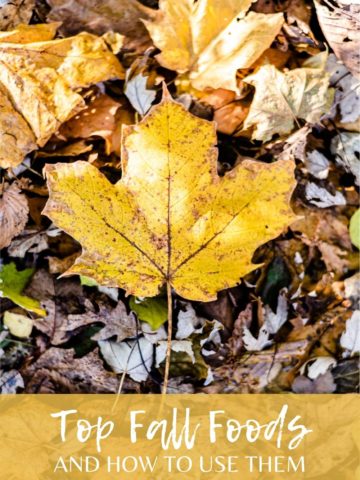
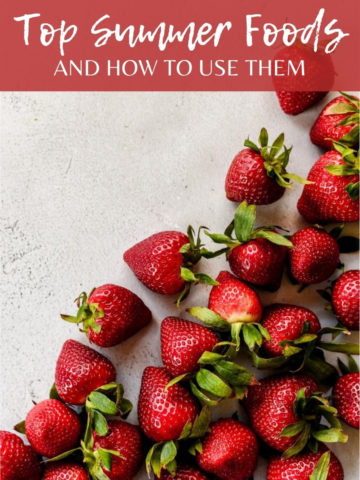

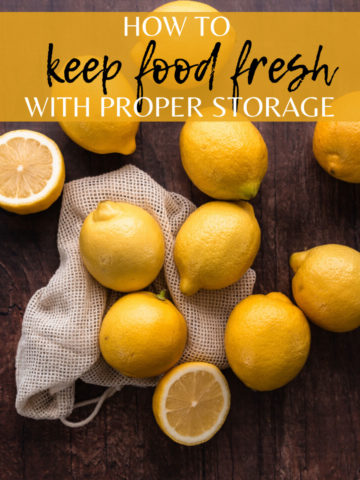
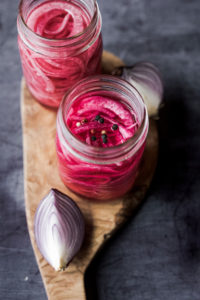


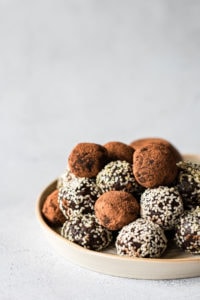
Leave a Reply